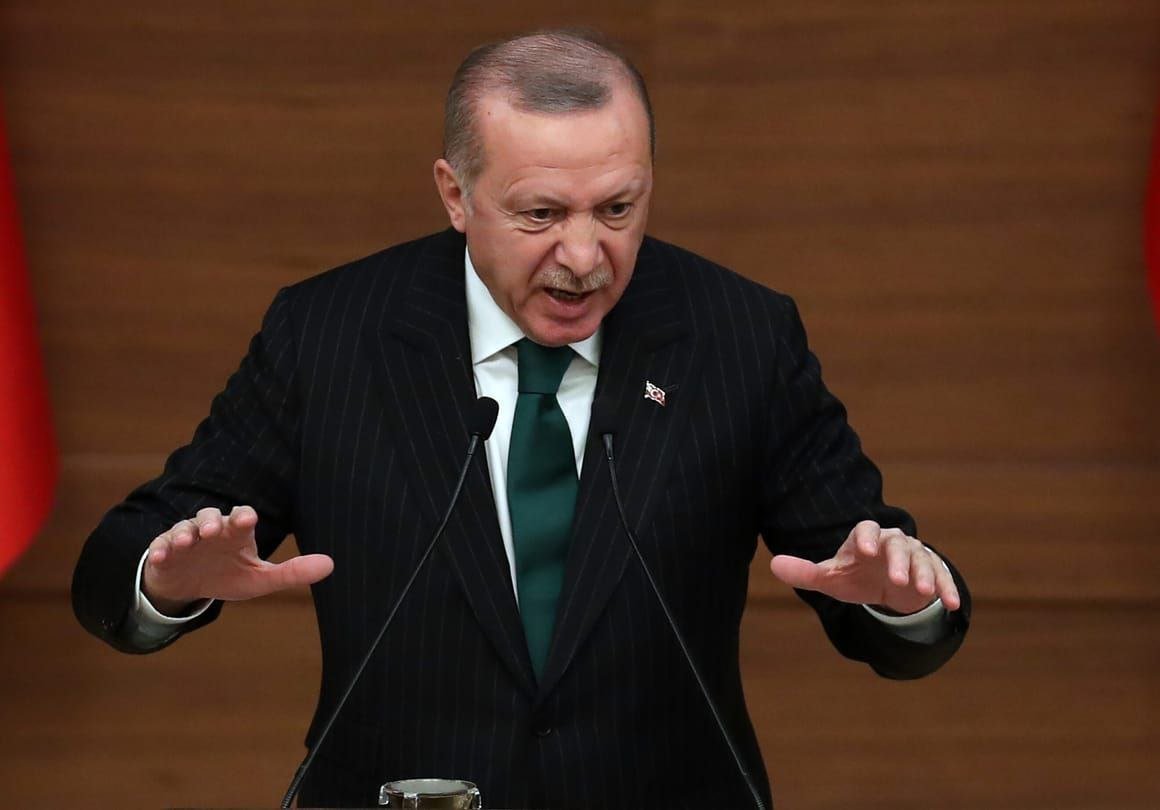Turkey’s Domestic Crisis Spurs Regional Gambits in Syria Amid Shifting Middle East Dynamics
Executive Summary
Mass protests erupt across Turkey over the detention of Istanbul’s opposition mayor Ekrem İmamoğlu, deepening domestic political turmoil for President Recep Tayyip Erdoğan. As Erdoğan cracks down at home, he simultaneously maneuvers to assert regional dominance in post-Assad Syria, intensifying rivalries with Israel and Iran. The domestic democratic backslide and external power plays are deeply intertwined, reshaping Turkey’s foreign policy trajectory and its relationships across the Middle East.
Analysis
The arrest of Istanbul Mayor Ekrem İmamoğlu—widely seen as President Erdoğan’s most formidable challenger—has ignited massive protests across Turkey, with demonstrators defying bans and risking detention. Over 300,000 people reportedly gathered in Istanbul alone, turning a local political crackdown into a nationwide fight for democracy. İmamoğlu’s detention on embezzlement and terrorism charges, which critics view as politically motivated, has galvanized opposition and plunged Turkey into deeper domestic unrest. Erdoğan’s government, facing mounting pressure over economic woes and public dissatisfaction, appears intent on crushing political rivals before the 2028 presidential election, in which İmamoğlu was poised to run.
Despite the domestic outrage, international reaction has been largely muted. While the UN and EU issued cautious statements about democratic values, the most tangible response came from investors—Turkey’s central bank reportedly spent $11.5 billion in a single day to stabilize the plunging lira. Meanwhile, U.S. President Donald Trump—who recently spoke with Erdoğan—has remained conspicuously silent. His administration’s muted stance, in contrast to past Western condemnation of Erdoğan’s autocratic moves, reflects a broader shift: under Trump, Washington’s tolerance for strongman politics abroad appears to be rising. Analysts warn this emboldens Erdoğan and contributes to a growing perception among autocrats that the global order will not restrain internal repression.
As Erdoğan consolidates power at home, he is escalating his influence abroad—particularly in post-Assad Syria. Following the fall of Bashar al-Assad, Turkey has swiftly moved to position itself as the main architect of Syria’s political transition. Ankara supports a unified Syria under a centralized government, and welcomed a landmark agreement between Syria’s new interim leadership and the Kurdish-led Syrian Democratic Forces (SDF) to integrate into the national military structure. This development sharply contrasts with Israel’s position. Tel Aviv, deeply skeptical of Syria’s new Islamist-leaning government and alarmed by Turkey’s growing influence in Damascus, appears to favor a fragmented Syrian state that limits the projection of Turkish or Iranian power near its borders.
Israel has responded with military incursions into southern Syria and airstrikes targeting abandoned Assad-era infrastructure. It has also pledged support for the Druze minority, further complicating regional dynamics. Turkish officials, meanwhile, are engaged in high-level talks with Damascus and have hinted they may draw down their military footprint in Syria if Kurdish militants are neutralized—a condition that closely aligns with Turkey’s long-standing war against the PKK and its Syrian affiliates.
Complicating matters further, Iran’s alleged support for Syrian Kurdish groups has triggered fresh diplomatic tensions with Turkey. Turkish Foreign Minister Hakan Fidan issued a veiled threat suggesting that if Iran backs Kurdish factions, Turkey could retaliate by supporting separatist elements within Iran, particularly among its Azerbaijani minority. Both countries “invited” each other’s ambassadors for tense talks, but refrained from formal diplomatic escalation. While Turkey and Iran share some strategic goals—such as preventing Syrian fragmentation—their rivalry over Kurdish influence and regional supremacy is growing sharper by the day.
The role of the United States is increasingly fraught. Ankara has proposed a regional coalition involving Syria, Iraq, Jordan, and Turkey to fight Islamic State remnants—explicitly excluding the U.S.-backed Kurdish militias. Turkish leaders have openly urged President Trump to sever ties with the SDF, whom they label as terrorists due to links to the PKK. Trump’s prior withdrawal of troops from Syria and ongoing warmth toward Erdoğan fuel speculation that a U.S. exit from Syria is imminent, a shift that would dramatically reshape the battlefield and empower Turkish ambitions.
Meanwhile, the peace process with Turkey’s Kurds teeters on collapse. Following a dramatic ceasefire call from imprisoned PKK founder Abdullah Ocalan in February, hopes were high for a formal disbandment of the PKK. But the recent arrest of İmamoğlu and other opposition leaders, as well as the removal of ten pro-Kurdish mayors, has likely shattered those prospects. Kurdish celebrations of the Newroz holiday were marked by disappointment: Ocalan’s anticipated message never arrived, and the PKK declared that holding a congress to dissolve was impossible under current conditions.
Erdoğan’s internal crackdown is inextricable from his foreign policy. His pursuit of a post-Assad Syria aligned with Turkish interests is directly linked to suppressing Kurdish autonomy and quelling domestic dissent. The government’s aggressive posture toward both political rivals at home and regional powers abroad is fueling a dangerous convergence of domestic repression and external escalation. And with global powers distracted or disengaged, Ankara’s ambitions face few immediate obstacles.
As Gönül Tol of the Middle East Institute notes, the intersection of Trump’s indifference to autocracy and Europe’s geopolitical panic is enabling Erdoğan. With the EU increasingly looking to Turkey as a stabilizing force near Ukraine and the U.S. turning inward, Erdoğan calculates that there will be no meaningful international consequences for his authoritarian slide or his foreign interventions. Yet, this high-stakes gamble may carry internal and external costs that could destabilize both Turkey and the wider region.
Sources
The Guardian – Turkey’s Protests Over Istanbul Mayor Grow Into ‘Fight About Democracy’
BBC – Hundreds Arrested in Third Night of Turkey Protests
AP – Turkey and Israel Face Mounting Tensions Over Future of Post-Assad Syria
Middle East Eye – Turkey-Iran Tensions Soar Over Tehran’s Ties with Syrian Kurds
AP – Turkish Officials Visit Damascus After Kurdish Deal
AP – Turkey to Join Neighbors in Anti-ISIS Campaign
Al-Monitor – Peace Hopes Remain Remote as Turkey’s Kurds Mark Newroz
